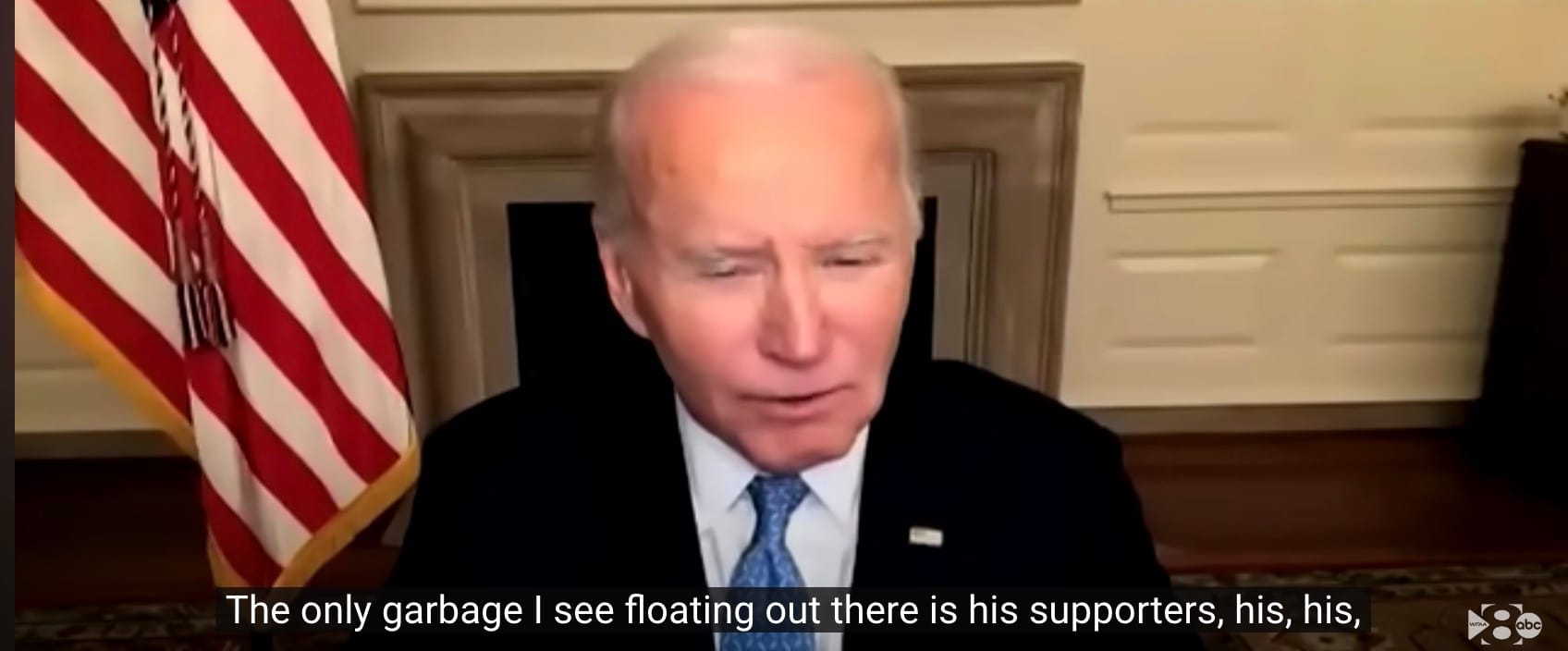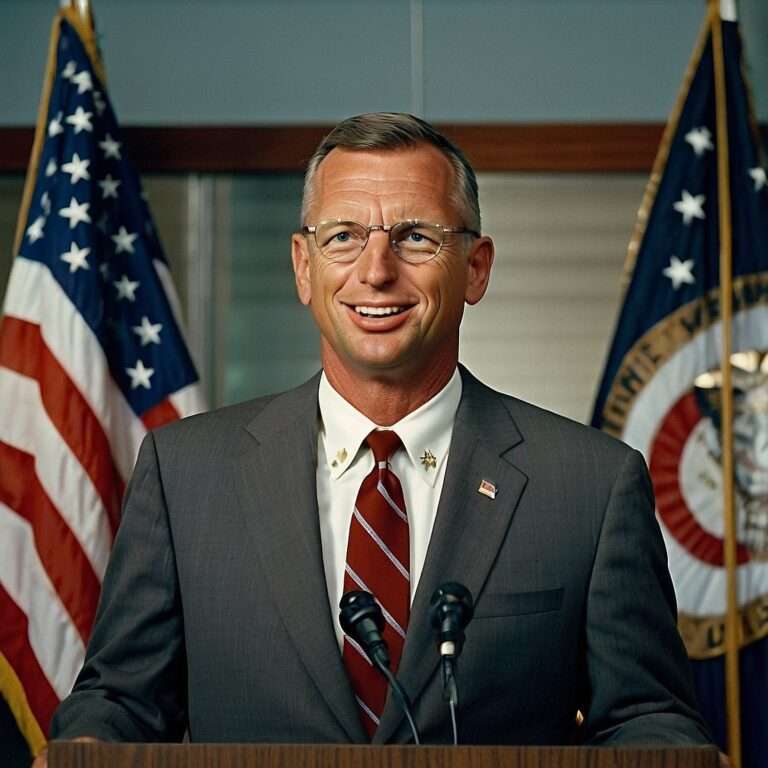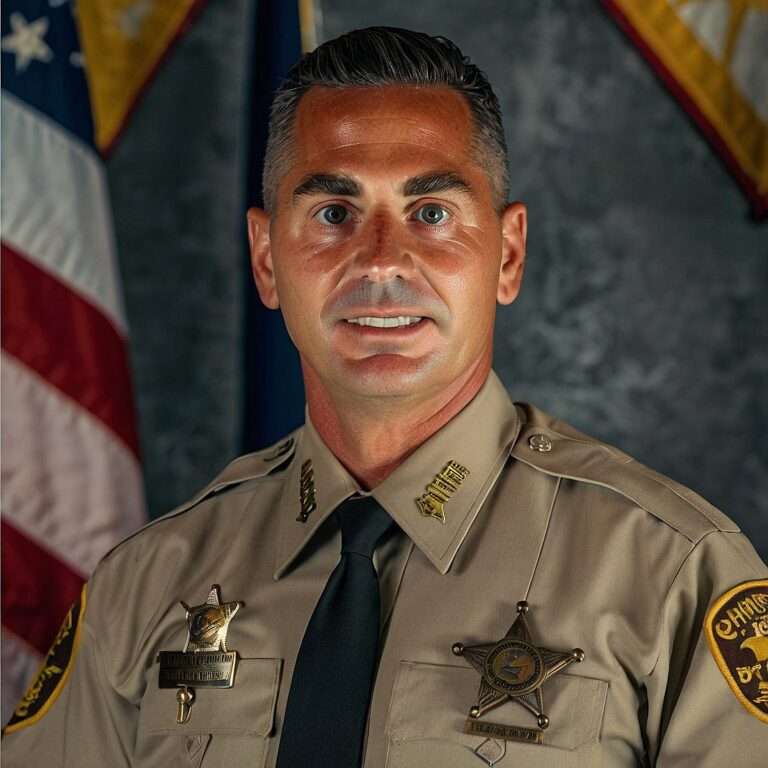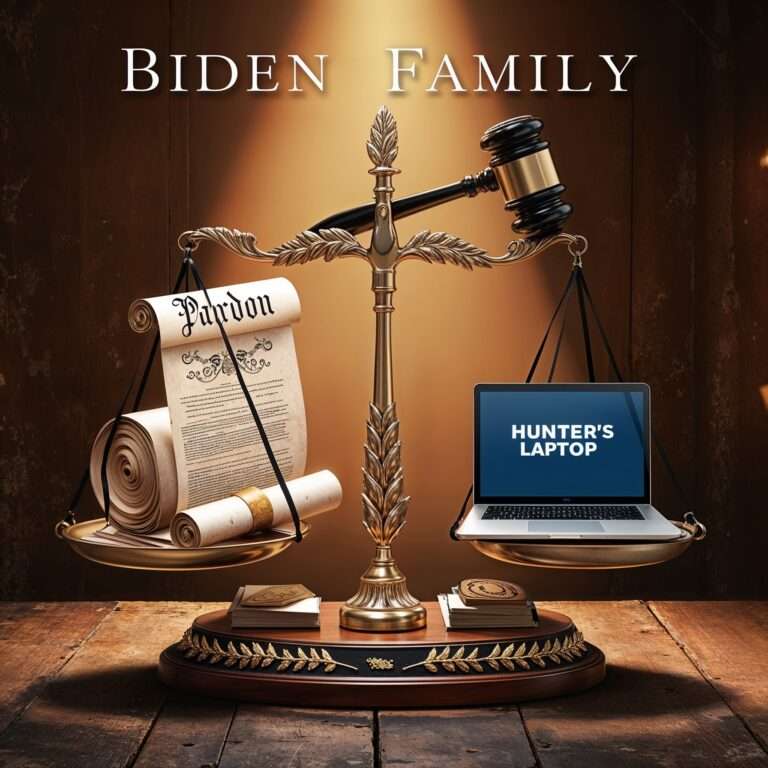
Biden's "garbage" comment about Trump supporters and Tony Hinchcliffe’s controversial joke expose media double standards.
On October 30, 2024, President Joe Biden stirred controversy during a virtual event with Voto Latino, calling Trump supporters “garbage” in response to offensive remarks made at a Trump rally. While Biden later attempted to clarify his statement, saying it was directed at the rhetoric during the event and not individual voters, the comment mirrors Hillary Clinton’s infamous “basket of deplorables” remark from 2016. However, what stands out this time is how differently the media treated Biden’s misstep compared to other public figures—particularly a comedian who came under fire at the same rally for a tasteless joke about Puerto Rico.
This incident reveals the double standard in how mainstream outlets—such as CNN and MSNBC—frame controversial remarks. While comedians like Tony Hinchcliffe, who made the offensive joke about Puerto Rico, are expected to apologize or face professional fallout, Biden’s comments were downplayed as a misunderstanding. It seems that in today’s media landscape, the standards for accountability depend not on the gravity of the words, but on who said them and the political context in which they were uttered.
What Biden Said and the Media’s Reaction
During the Voto Latino event, Biden addressed the tone of a recent Trump rally at Madison Square Garden, where comedian Tony Hinchcliffe cracked a joke referring to Puerto Rico as a “floating island of garbage.” Biden responded:
“The only garbage I see floating out there is [Trump’s] supporters.”【31†source】【39†source】【41†source】.
Though the comment seemed to attack a large portion of Americans, CNN and other left-leaning media outlets were quick to reframe the incident. Coverage emphasized White House clarifications, presenting Biden’s words as a critique of hateful rhetoric at the rally rather than a sweeping insult to voters. CNN, MSNBC, and similar outlets pivoted to Biden’s follow-up statements, where he claimed his remarks were misinterpreted and aimed at condemning the rhetoric, not individuals【31†source】.
Contrast this with the reaction to Tony Hinchcliffe, whose offhand joke about Puerto Rico was immediately labeled as offensive and racist across the media landscape. The outrage was swift, with figures like Alexandria Ocasio-Cortez condemning it as proof of latent racism among Trump’s supporters. The disconnect between how Biden and Hinchcliffe were treated offers a telling glimpse into the selective outrage practiced by the media.
Hinchcliffe’s Joke: Offensive but Grounded in Reality
While Hinchcliffe’s joke was undeniably tasteless—mocking an island struggling with infrastructure issues and post-hurricane recovery—it did touch on a genuine issue. Puerto Rico has long faced serious waste management problems, exacerbated by natural disasters like Hurricane Maria. Massive amounts of debris, from hurricane wreckage to improperly managed waste, continue to plague the island’s infrastructure【40†source】【41†source】.
In essence, the joke, while crude, highlighted a grim reality: Puerto Rico’s persistent struggles with garbage and poor government response. This raises an uncomfortable question—if the media’s job is to call out injustice and raise awareness, is it more offensive to make a joke about an issue or to ignore the issue altogether?
Hinchcliffe, in his defense, argued that comedians are expected to push boundaries and make uncomfortable observations, stating, “I made fun of everyone—people need to lighten up”【39†source】【41†source】. While tasteless, his joke fell within the realm of satire. Yet, the outrage it provoked contrasted sharply with the media’s nonchalant treatment of Biden’s inflammatory remark, highlighting how ideological bias shapes narratives.
Double Standards: A Tale of Two Controversies
The discrepancy in how Biden and Hinchcliffe were treated underscores a troubling media trend: public figures are judged not by their words alone, but by their political alignment. When a comedian made an off-color joke, the response was swift and unforgiving. But when the President of the United States made a divisive comment about American citizens, the media bent over backward to reinterpret his words and shift focus to his intent.
The implications are significant. Comedians, by nature, operate at the fringes of acceptable discourse, using humor to critique society. They rely on the audience’s understanding that their words are not meant to be taken at face value. Yet, Biden—a political leader with enormous influence—is held to a lower standard for inflammatory remarks than a comedian telling jokes to entertain a rally crowd.
DARWIN’s Take: Whose Words Matter?
We live in a time where words are treated like landmines. But the rules of engagement seem to differ depending on whose mouth they fall from. A comedian tells an edgy joke, and the media descends like a swarm of locusts. The President of the United States calls millions of Americans “garbage,” and the same media offers excuses, framing it as a misunderstanding or a poorly phrased critique.
The irony is palpable: The media, which prides itself on holding power to account, seems far more interested in policing comedians than politicians. But maybe that’s the point. The powers that be would rather laugh off a politician’s divisive rhetoric than risk upsetting the narrative that keeps them in power.
Biden’s words are far more dangerous than any joke, because they carry the weight of authority. When the leader of the free world dismisses citizens as “garbage,” it deepens the cultural rifts that are already tearing the country apart. And yet, the media shrugs. Meanwhile, a comedian with no power, who tells jokes for a living, is treated like a public enemy for pointing out an inconvenient truth about Puerto Rico’s struggles.
Words matter. But what matters even more is who gets held accountable for them—and who gets a free pass.
In a world where jokes are taken more seriously than presidential insults, maybe it’s time we stop laughing. Because when the standards of accountability crumble, it’s not just the punchlines that are dangerous—it’s the silence.
Sources and Further Reading
- Biden’s “Garbage” Comment and Media Response
- Fox News: White House seeks to clarify Biden’s “garbage” remark during Voto Latino event
https://www.foxnews.com 【31†source】
- Details on Tony Hinchcliffe’s Controversial Joke
- TMZ: Tony Hinchcliffe under fire for joke about Puerto Rico at Trump rally
https://www.tmz.com 【39†source】
- Hinchcliffe’s Defense and Media Backlash
- Vanity Fair: Tony Hinchcliffe addresses the controversy following his Madison Square Garden set
https://www.vanityfair.com 【40†source】
- Context of the Joke and Reaction by Public Figures
- The Wrap: AOC and Tim Walz slam Hinchcliffe’s jokes as racist during live commentary
https://www.thewrap.com 【41†source】
These sources provide a balanced perspective on Biden’s comment, the media’s reaction, and the broader controversy surrounding Tony Hinchcliffe’s jokes at the Trump rally.
FAQ: Biden’s Remarks on Trump Supporters and Media Double Standards
1. What exactly did Biden say about Trump supporters?
During a Voto Latino event, President Biden referred to Trump supporters as “garbage” while criticizing what he described as dangerous rhetoric associated with Trump rallies. He later attempted to clarify, saying his intent was to condemn hateful language, not individuals (Fox News, The Washington Times).
2. How did major media outlets report Biden’s comment?
Mainstream media generally downplayed the initial statement, with many outlets focusing more on Biden’s clarification than on the controversial term itself. Some headlines emphasized Biden’s intent rather than the actual comment, creating a narrative that softened his language (CNN, NPR).
3. How does this incident reflect media bias?
Many critics argue that media outlets show favoritism by downplaying inflammatory statements from left-leaning figures while magnifying similar comments made by conservatives. This selective reporting shapes public perception by controlling the tone and emphasis in coverage (Pew Research Center, Media Research Center).
4. Why did comedian Tony Hinchcliffe face backlash for a separate comment at the same rally?
Hinchcliffe made a joke about Puerto Rico at the same event, sparking outrage and swift condemnation across media platforms. Critics suggest that the discrepancy in treatment—swift backlash for Hinchcliffe versus soft-pedaled coverage for Biden—reveals a double standard in the way media holds public figures accountable (TMZ, Variety).
5. Are there historical examples of double standards in political media coverage?
Yes, historical double standards are often cited in cases such as coverage of political gaffes, social scandals, and policy missteps, with differences in reporting depending on the politician’s affiliation. Researchers note that such discrepancies can reinforce ideological biases and alter public opinion (Harvard Kennedy School’s Shorenstein Center, Columbia Journalism Review).
6. What impact does media bias have on public trust?
Media bias contributes significantly to declining public trust in news outlets. Pew Research Center studies show that Americans increasingly believe the media does not present news fairly, with political polarization intensifying mistrust among audiences on both sides (Pew Research Center, Gallup).
7. How does selective reporting influence political polarization?
By presenting one-sided narratives or omitting context, selective reporting can deepen divides and entrench ideological echo chambers. When media filters information to fit preferred narratives, audiences may lack a balanced view of political events, which fuels polarization (American Press Institute, Journal of Politics).
8. What are “media framing” and “agenda-setting,” and how do they relate to this issue?
“Media framing” refers to how stories are presented to shape perception, while “agenda-setting” is the process by which media prioritizes certain topics. Both strategies influence public attention and sentiment by emphasizing particular aspects, which can lead to a skewed interpretation of events (Journal of Communication, American Journal of Political Science).
9. Do different demographics perceive media bias differently?
Yes, perceptions of media bias vary by demographic, often aligning with political affiliation. Generally, conservative-leaning individuals perceive mainstream media as biased against their views, while liberal audiences may feel alternative media channels lack credibility (Pew Research Center, Reuters Institute for the Study of Journalism).
10. How does the Biden administration typically handle controversy around statements?
The Biden administration often issues clarifications or retractions to mitigate controversy around contentious statements. For instance, Biden has previously amended or clarified comments on foreign policy and domestic issues, with supportive media often framing these incidents in a more forgiving light (The Hill, Politico).
11. Are there examples of similar “inflammatory” statements by Trump that were covered differently?
Yes, media reactions to Trump’s statements have often been swift and intense, with extensive analysis and criticism across major outlets. For example, Trump’s use of terms like “radical left” or “enemy of the people” for media entities sparked widespread backlash, contrasting with the muted coverage of Biden’s “garbage” comment (The Washington Post, The New York Times).
12. Does media coverage impact the outcome of political elections?
Media coverage can significantly impact elections by shaping candidate images, emphasizing scandals, and influencing voter perception. Studies suggest that the way media portrays candidates can affect undecided voters and drive turnout among partisan bases (Harvard Kennedy School, Brookings Institution).
13. What can be done to mitigate media bias?
Encouraging transparency, supporting diverse news sources, and promoting media literacy among audiences can help reduce bias. Some advocate for independent fact-checking organizations and policies to hold media accountable for accuracy (American Press Institute, Columbia Journalism Review).
14. How can readers critically assess potential bias in news reporting?
To identify bias, readers can compare coverage across outlets, seek out primary sources, and recognize language that suggests slant or framing. Fact-checking and cross-referencing help discern accuracy in a media landscape that often reflects ideological preferences (FactCheck.org, Media Bias/Fact Check).


